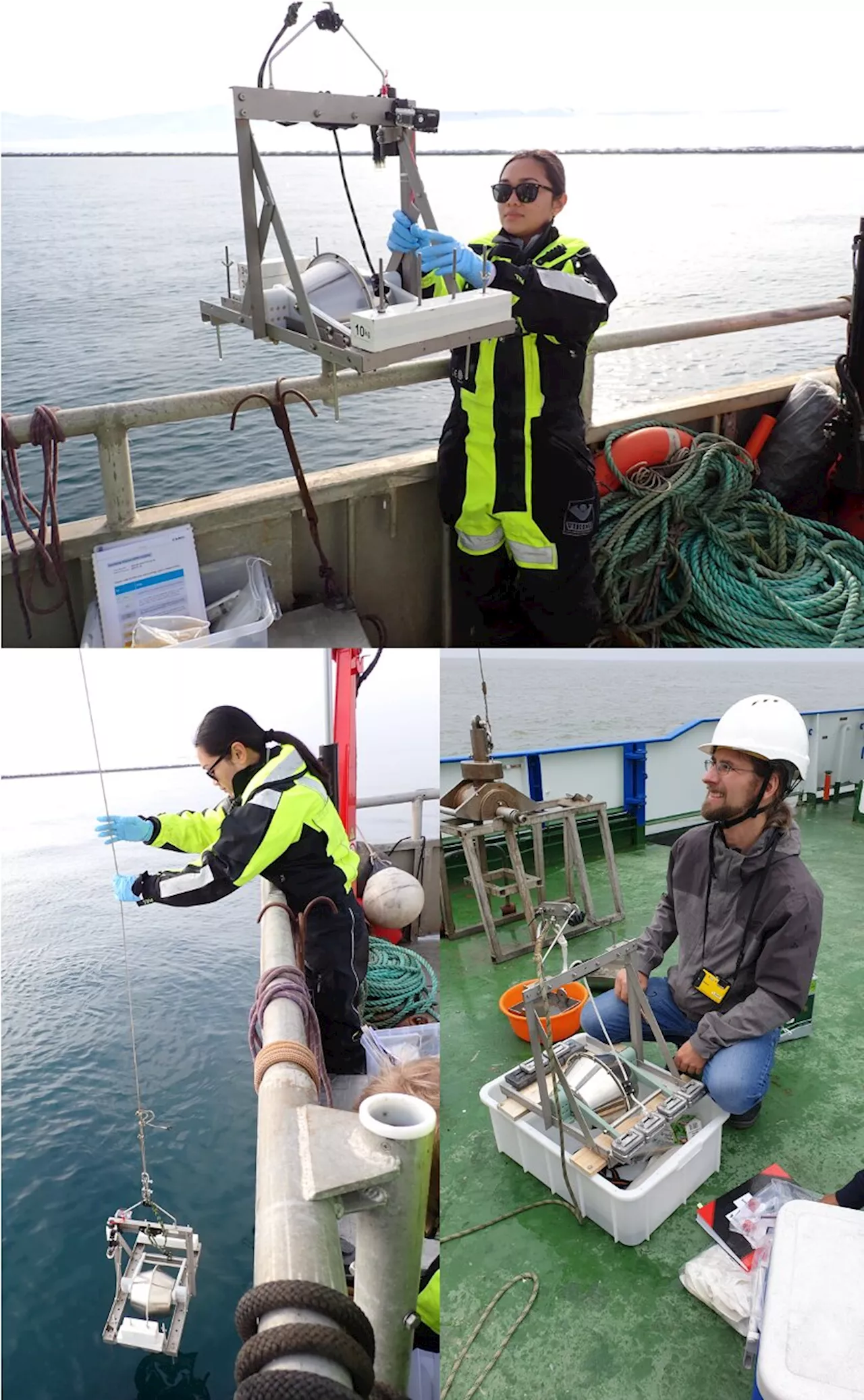Researchers say this could lead to more targeted treatment approaches.
To many other researchers, creating a map of the 86 billion neurons, or nerve cells, that make up the brain would be considered a nearly insurmountable project. However, researchers at theare pursuing that very task, saying it will lay the foundation for helping to better understand how the brain functions the way it does.
Senior Scientist Brian Lee and CEO Rui Costa examine scans at the Allen Institute in Seattle, Washington, March 13, 2024.Dr. Ed Lein, senior investigator at the Allen Institute for Brain Science, said it was only recently that the tools existed to enable researchers to make high-resolution maps of the brain, which in turn can provide complete descriptions of all the cells that make up the organ.
"For example, if we can identify the vulnerable types of cells, we can now develop tools to check to start to target them,” Lein noted. “And so, it's a whole new research area that's been opened up by new technologies." "So, it's going to be super helpful, the more that we start to understand all the cell types in the brain and how different cell types are affected to disease, we can start taking a more a very more selected and targeted approach to treating it and, hopefully, eliminating it," Lee said.
United Kingdom Latest News, United Kingdom Headlines
Similar News:You can also read news stories similar to this one that we have collected from other news sources.
 Scientists found hidden moons orbiting Uranus and NeptuneAstronomers have discovered hidden moons orbiting Neptune and Uranus, increasing the number of moons orbiting each planet.
Scientists found hidden moons orbiting Uranus and NeptuneAstronomers have discovered hidden moons orbiting Neptune and Uranus, increasing the number of moons orbiting each planet.
Read more »
 Robolawyers Are As Good As Humans, Say ResearchersQuicker, cheaper and almost as accurate as humans, robolawyers are set to disrupt the legal industry.
Robolawyers Are As Good As Humans, Say ResearchersQuicker, cheaper and almost as accurate as humans, robolawyers are set to disrupt the legal industry.
Read more »
 US researchers develop 'unhackable' computer chip that works on lightInteresting Engineering is a cutting edge, leading community designed for all lovers of engineering, technology and science.
US researchers develop 'unhackable' computer chip that works on lightInteresting Engineering is a cutting edge, leading community designed for all lovers of engineering, technology and science.
Read more »
 Bacteria in the Arctic seabed are active all year round, researchers findDespite the pronounced seasonality in their habitat, the bacterial community in Arctic sediments is taxonomically and functionally very stable.
Bacteria in the Arctic seabed are active all year round, researchers findDespite the pronounced seasonality in their habitat, the bacterial community in Arctic sediments is taxonomically and functionally very stable.
Read more »
 Researchers Hope To Harness Tidal Energy to Power Faroe IslandsThroughout history, the currents in the fjord between two of the islands made travel treacherous. Now, the tides may be changing.
Researchers Hope To Harness Tidal Energy to Power Faroe IslandsThroughout history, the currents in the fjord between two of the islands made travel treacherous. Now, the tides may be changing.
Read more »
 Researchers say gas giants may start off flatterNew research indicates that gas giant formation could have a surprising twist: Those planets might start off much flatter.
Researchers say gas giants may start off flatterNew research indicates that gas giant formation could have a surprising twist: Those planets might start off much flatter.
Read more »
